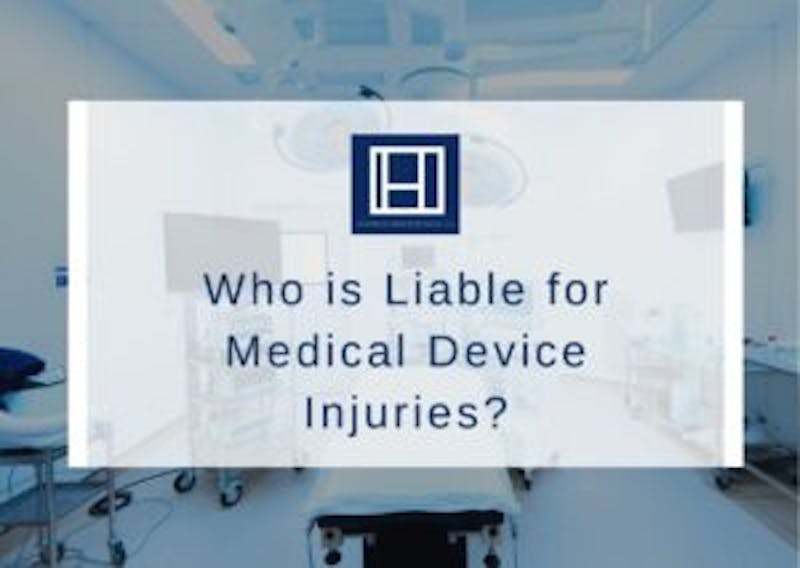
Medical devices are modern inventions that are engineered to improve the quality of life for patients. Unfortunately, these medical devices are sometimes defective and can cause innocent victims to suffer serious injuries and even death. Determining who is liable in medical device injury cases can be challenging. If you have been injured by a medical device, it is important that you reach out to an experienced attorney as soon as possible so your attorney can begin investigating your case and gathering evidence.
How Does the FDA Define Medical Devices?
Medical devices are defined by the Food and Drug Administration (FDA) as an instrument, apparatus, machine, or similar article that includes a part that is intended to diagnose, prevent, treat, or cure a disease, as well as physically influence the function or structure of the human body. Even when medical devices are monitored correctly, they can still cause dangerous injuries to patients due to one or more defects.
Types of Medical Devices
There are hundreds of thousands of medical devices on the market, but some of the most commonly used medical devices include the following:
- Pacemakers and defibrillator
- Hearing aids
- Breast implants
- Contraceptive devices
- Hip implants
- Insulin pumps
- Heart stents
- Transvaginal mesh
Injuries Caused by Defective Medical Devices
Similarly, there are many different types of injuries caused by defective medical devices. The type of injury depends on the way the medical device is used. Some of the most common types of injuries caused by defective medical devices include the following:
- Stroke
- Organ loss
- Heart attack
- Chronic pain
- Permanent disability
- Bone or tissue damage
- Allergic reaction
- Incontinence
Types of Liability in Medical Device Manufacturing
Defective medical devices have the potential to cause life-threatening conditions. As a result, laws related to medical device injuries are strict. When medical device manufacturers fail to meet these legal standards, the victim has a right to pursue a product liability lawsuit against the manufacturer. In Alabama and throughout the United States, medical device manufacturers can be held liable for all of the following types of negligence:
- Lack of testing: Medical devices are required to undergo multiple tests and trial phases before the manufacturer can release them to the market. If they are released without proper evaluation, manufacturers can be held liable for problems, especially if they intentionally try to hide the dangerous flaws in their medical devices.
- Faulty designs: If the medical device was not designed correctly, resulting in injuries and damages to users, the manufacturers could be held liable.
- Reckless manufacturing: Even when a medical device has been designed safely, the manufacturer can still be held liable when an error in manufacturing causes an injury. When the medical device is not assembled correctly or the parts are not correctly made.
- Failure to warn the patient: All devices, including medical devices, must have a warning label that states the potential dangers and hazards of using the product. If an injury occurs because the manufacturer failed to warn the user, the injured victim can hold the manufacturer liable.
Schedule a Free Legal Consultation Contact Us
Who Can be Held Liable?
You may assume that the manufacturer is the only person you can hold liable after being injured by a defective product. This is not the case. In many product liability lawsuits, injured victims can hold manufacturers, suppliers, retailers, and medical professionals liable. You may be able to bring a lawsuit against one or more of the following parties:
- Retailers: Most medical devices are delivered straight to medical facilities by the product manufacturers. If the product went through a retailer, you may be able to hold the retailer liable for selling faulty medical devices.
- Medical facilities: Medical facilities are considered part of the distribution chain. As a result, you can hold them liable for the damages you receive because of defected devices.
- Medical professionals: You may be able to hold your doctor liable if they failed to provide you with adequate warning about the potential risks and side effects of using the medical device.
- Manufacturers: Manufacturers are typically the first entity that plaintiff’s consider bringing a lawsuit against. manufacturers typically have a team of attorneys who are prepared to fight product liability claims, however. Including other defendants in your claim could be helpful.
Contact an Alabama Medical Device Injury Attorney
If you or your loved one suspect that you have been injured due to a defective medical device, it is important that you reach out to an attorney as soon as possible. The skilled medical device injury attorneys at Heninger Garrison Davis are prepared to help you pursue the compensation you deserve. Contact us today to schedule your initial consultation.
